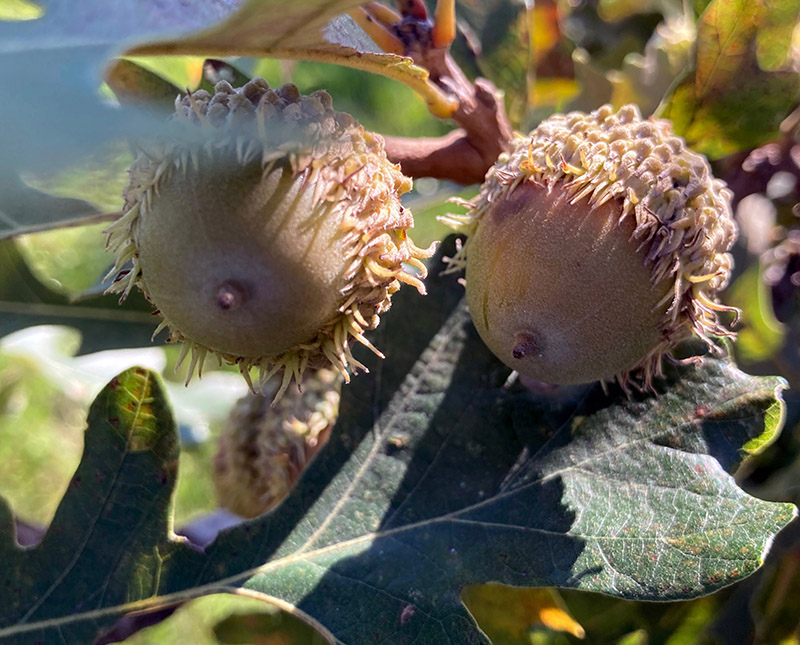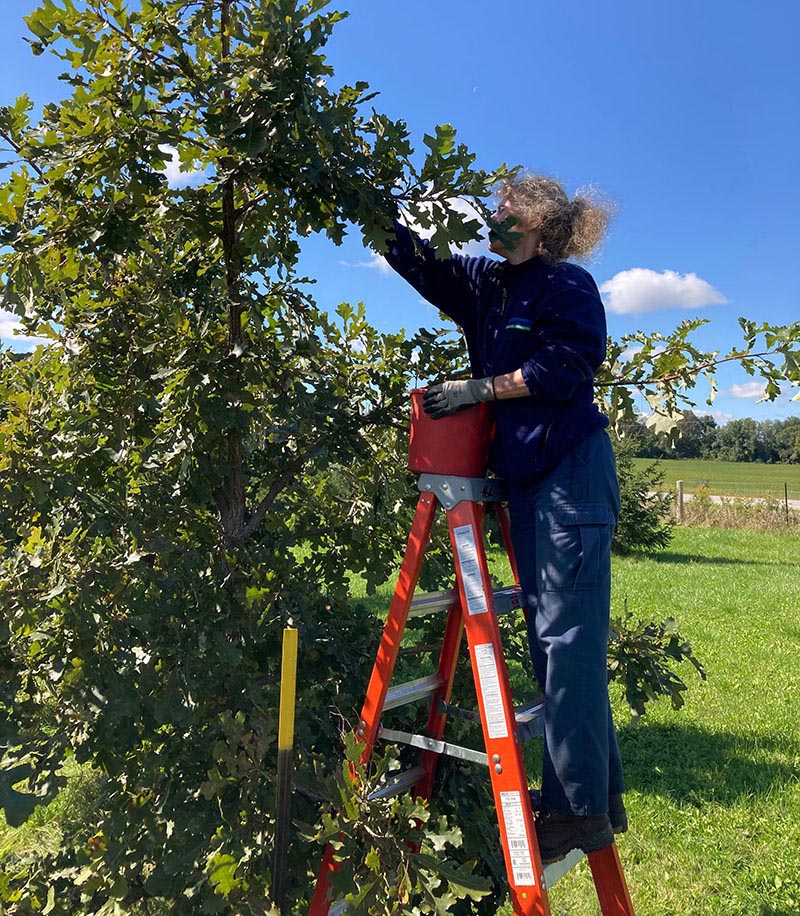Climate Change Tree Trial Produces First Seed Crop (UTRCA weekly, November 5, 2021)
The Oxford County Bur Oak Climate Change Trial is a partnership between the Forest Gene Conservation Association, Oxford County, and the Upper Thames River Conservation Authority (UTRCA). Located at the Salford Waste Management Facility, the site has Bur Oak trees from local sources, as well as from Pennsylvania and Tennessee. The project is testing the theory that as our climate continues to warm, trees from more southern locales will perform better than our local trees, as they are better adapted to a warmer climate.
This year, the Tennessee and Pennsylvania trees produced their first seed crop! This is remarkable, considering the trees were planted only 11 years ago as 25 cm tall, one year old seedlings. The local Bur Oak trees did not produce any seed.

In September, UTRCA forestry staff collected approximately 100 litres of Bur Oak acorns from trees, with most of the nuts coming from the Tennessee trees. These trees held their seed longer, so staff hand-picked them from the trees. This makes sense as the Tennessee trees are programmed to grow longer into the fall. The Pennsylvania trees had dropped their acorns, which staff collected from the ground. The main difference between the acorns is the size: the Pennsylvania acorns are similar in size to local acorns, while the Tennessee acorns are two to three times larger.
The seed has been shipped to Kayanase, a local tree and seed nursery located at Ohsweken on the Six Nations of the Grand River. Here, they will be greenhouse grown to one year old plug seedlings. Assuming germination is good, it is hoped that some of this stock will come back to the UTRCA for an experimental planting in the spring of 2023.

The UTRCA is also managing a Red and White Oak Climate Change Trial in Oxford County. That trial was planted in 2010 and the Red Oak were thinned in 2019. The trees are doing exceptionally well despite being heavily defoliated by Lymantria dispar, or Ldd (formerly known as European Gypsy Moth), in 2021. It is anticipated that this trial will also begin to produce seed in the next couple of years.
“As our climate continues to warm, local Red, White, and Bur Oaks may not adapt well or produce seed for future forests. We are testing whether oaks from warmer climates will be better adapted for Southern Ontario in the future,” said John Enright, Forester at the UTRCA. “We are very grateful to partner with the County of Oxford, Phil Holst, and the Forest Gene Conservation Association on this project.”
Find out more:

